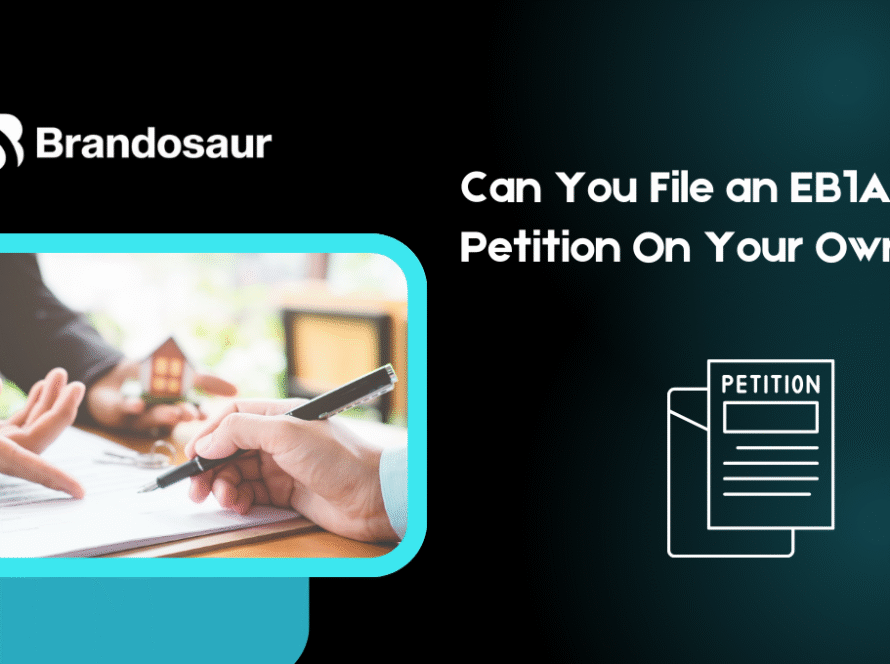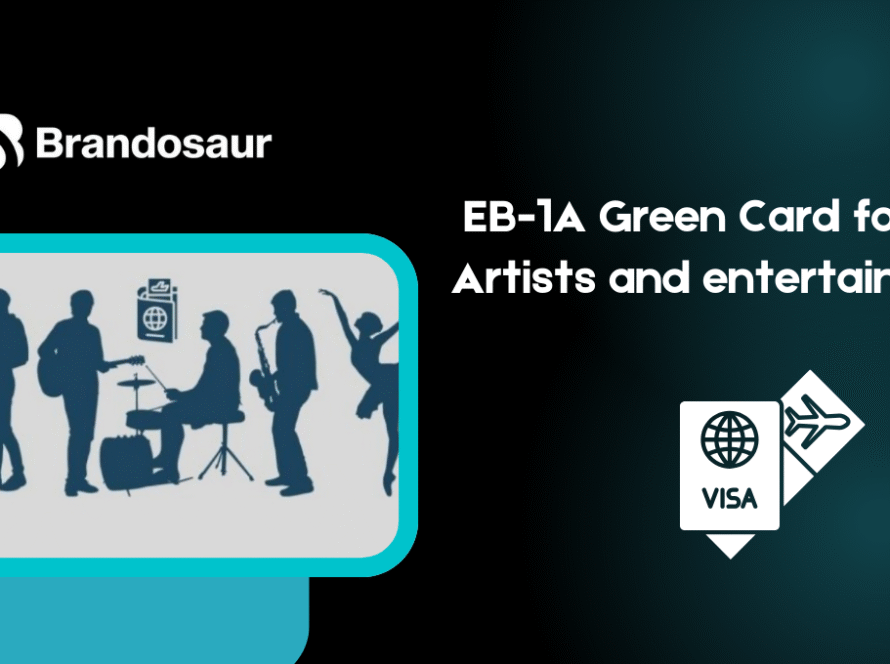O-1 Visa: A Complete Guide on Types, Eligibility Criteria, Application Process, and Key Updates of 2025
- Brandosaur
- April 21, 2025
- 2:00 pm
The O-1 visa is a non-immigrant visa. If you are an accomplished person with extraordinary abilities or achievements in your specific field (science, arts, education, business, athletics, motion picture, or television industry), you can apply for an O1 visa. USCIS has updated the O-1 visa policy in 2025 that enhances flexibility and clarity for applicants.
Keep reading! You will learn about the types of O-1 Visa, applicant eligibility criteria, detailed application process, and policy updates in this article.
What are the O-1 Visa Categories?
The O-1 nonimmigrant visa is commonly categorized into the following two types:
- O-1A: This visa is designed for a person who has demonstrated extraordinary ability in the sciences, education, business, or athletics.
- O-1B: A person with an extraordinary ability in the arts or extraordinary achievement in the motion picture or television industry can get this O-1B.
Book a Free Consultation
Unsure how to kick off your social media strategy? Schedule a call with one of our experts, and we'll guide you every step of the way.
Eligibility Criteria
To meet the basic requirements and qualify for the 0-1 visa, fulfill the following requirements:
- As an O-1 visa beneficiary, you must have a U.S. employer or agent sponsor because self-petitioning is not allowed.
- Include an advisory opinion regarding sustained reputation for extraordinary ability in a specific field from a trade/consulting organization or a reputable peer group in the beneficiary’s area of expertise.
- You must have extraordinary ability in science, technology, engineering, and mathematics (STEM), education, business, or athletics. You can see USCIS Policy Manual Volume 2, Part M, Chapter 4, Section C, and Appendix: Satisfying the O-1A Evidentiary Requirements to learn how USCIS evaluates evidence for O-1A eligibility determination.
- You should have a distinction in the field of arts, motion picture, or television industry to showcase that you are prominent, renowned, leading, or well-known in it. This distinction should be evidenced by a degree of skill and recognition substantially above. For detailed information on how USCIS evaluates evidence to determine O-1B eligibility, you can go through USCIS Policy Manual Volume 2, Part M, Chapter D, and Appendix: Satisfying the O-1B Evidentiary Requirements.
Other than the general requirements, you must have at least three of the following requirements:
- Membership in associations in your field that require outstanding achievements judged by field experts.
- Receipt of nationally or internationally recognized awards.
- Published material about the applicant in professional publications.
- Original contributions of major significance in the field.
- Authorship of scholarly articles.
- High salary or remuneration for services.
- Participation as a judge of others’ work.
- Employment in a critical or essential capacity for organizations with distinguished reputation.
- A major internationally recognized award, like a Nobel Prize or Olympic Medal, can suffice.
Application Process for an O-1 Visa
Petition Filing
A U.S. employer or agent files Form I-129, Petition for Nonimmigrant Worker, on your behalf, along with the required evidence according to the form instructions at least 45 days before the date of employment.
Supporting Documentation
With your application, the petitioner must submit the documentary evidence in addition to Form I-129:
- Consultation: The Petitioner must provide a written advisory opinion, with a watermark or other distinctive marks for authenticity, from a peer group, labor union, management organization, or a person with expertise in the beneficiary’s area of ability.
- Exceptions to the Consultation Requirement: USCIS will make its decision based on the evidence Petitioner submits in support of the Form I-129, if your employer or agent can elaborate that an appropriate peer group or a labor organization does not exist.
- Contract between petitioner and beneficiary: A copy of the oral agreement summary or written contract between you and the petitioner will be attached to your file.
- Itineraries: The petitioner must describe the nature, dates, and itinerary of the events or activities, and prove they align with the requested validity period in the applicant’s field.
- Agents: A U.S. agent can serve as your direct employer, a representative for you and your employer, or an authorized individual or entity acting on the employer’s behalf.
Evidence demonstrating O-1 Eligibility: The petitioner must submit evidence of your extraordinary ability or achievement in science, arts, business, education, athletics, or the motion picture industry with at least three types of qualifying documentation or comparable evidence that collectively meets the regulatory standards for O-1 classification.
2025 Policy Updates
USCIS updated its policy manual in January 2025 to clarify and expand O-1 visa guidelines:
- Beneficiary-Owned Petitions: Individuals can now have their own U.S.-based companies petition on their behalf, provided the entity is legally distinct.
- Expanded Evidence Criteria: USCIS now accepts letters from U.S. government agencies or quasi-governmental entities as evidence of an applicant’s sustained acclaim.
- Flexibility for Early-Career Professionals: Awards do not need to be tied to advanced career stages, which benefits early-career professionals and student entrepreneurs.
- Enhanced Examples for Original Contributions: The policy now includes more illustrative examples, like patents or licenses deriving from the beneficiary’s work.
- Simplified Extension Requests: Guidance allows for three-year extensions with the same employer, streamlining renewals.
FAQs
The O-1 visa is a U.S. non-immigrant visa for individuals with extraordinary ability or achievement in sciences, arts, education, business, athletics, or the motion picture/TV industry.
Yes, spouses and unmarried children under 21 can accompany the O-1 visa holder under the O-3 visa category. However, they cannot work in the U.S.
Yes, a U.S. agent can be the actual employer. When an agent petitions for the beneficiary as the employer, the petition must include the oral or written contractual agreement between the agent and beneficiary.





